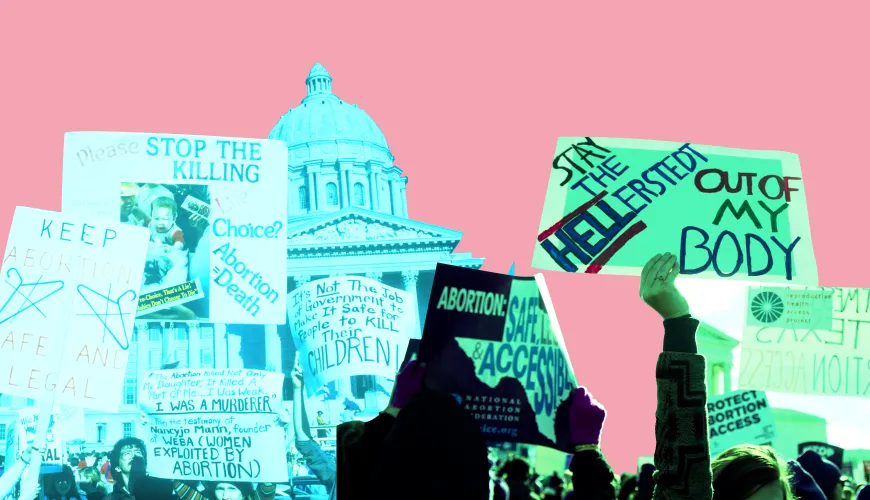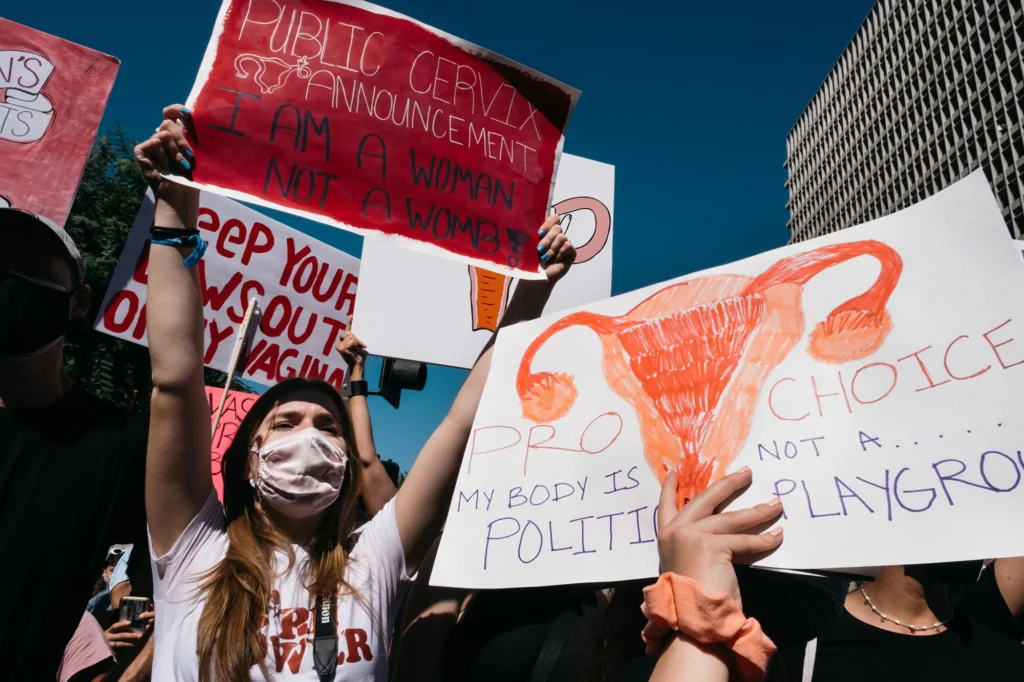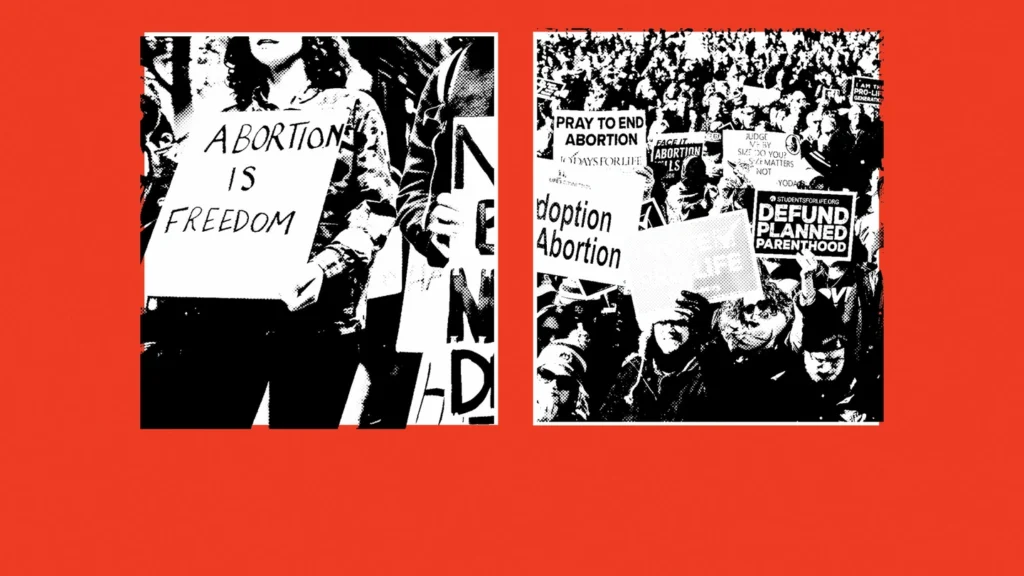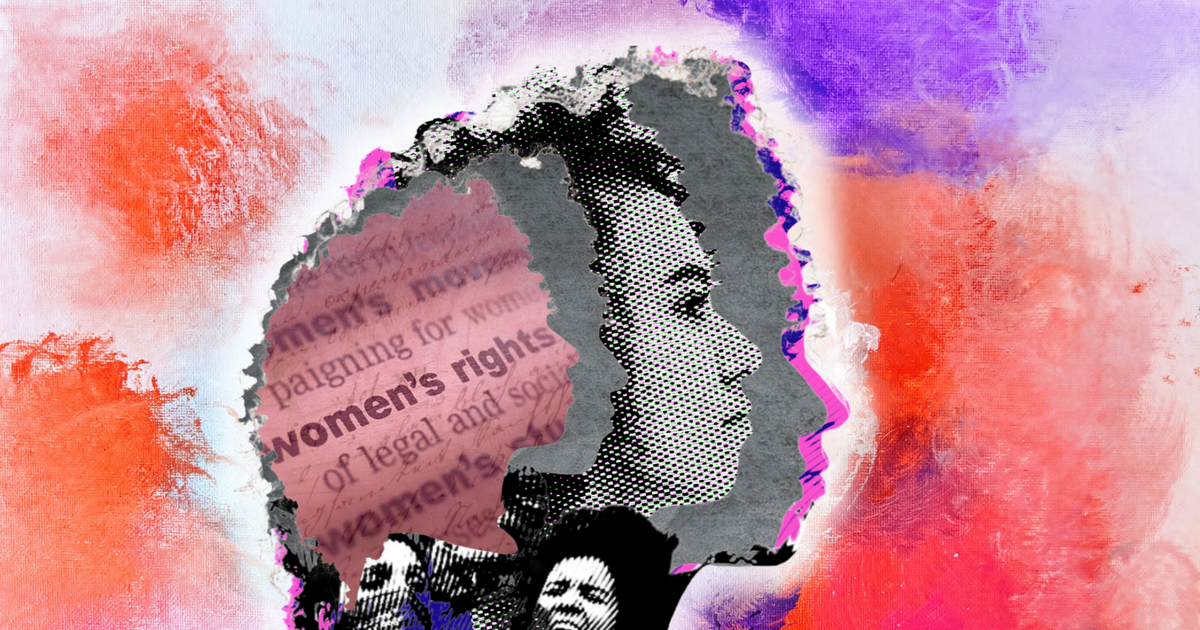By Eva Tsakali,
I think that I ought to start this article with a disclaimer: normally, I refrain from writing articles on the topic of abortions. Not because I do not feel strongly about the issue or because I think that I cannot support it, but partly because there are many editors who have successfully written on the topic so far and mainly because I would get too emotional to compose a properly structured text, destined to be an article. However, there were two events that finally resulted in these words; on one hand, it was the news from the other side of the Atlantic to which I will refer later, and on the other hand, the bitter realization that anti-abortionists not only live among us today, but also are not often the types of people who one would expect to have such views; they can be young, educated, and with all the stimuli in the world to be open-minded and pro-human rights, and yet choose otherwise.
It was the former classmate who commented on pro-choice articles on Facebook calling women who choose to abort “sinful creatures”, and the peer in the workplace who publishes articles in the same sense, recently celebrating the Roe v. Wade decision, talking about “a victory of life” (among some more hideous things that could make even the most conservative go ballistic). It was them, basically, that made me want to write this article, to demonstrate, in the modest way that casual editorial allows me, where these views have brought us. Although this “demonstration” will revolve around a recent application of Roe v. Wade, let me begin with a territory I know much better, France…

Bobigny, 1971
It is in the northern Parisian suburb of Bobigny, that Marie-Claire Chevalier was raped by a family friend; a rape that got her pregnant. We are in 1971, and abortion is illegal in France. Her mother, a single mother-of-three and modest employee of the SNCF (the French national railway company) struggled to help her daughter get a discreet (albeit clandestine) abortion. There was no discussion of reporting the rape since that would lead to revealing the clandestine abortion; which was the case in the end.
The unsafe abortion would soon lead Marie-Claire to the hospital with stomach aches and excessive bleeding. A suspicious obstetrician pressed the mother and daughter into confessing to having proceeded with the procedure. The result? A fine of 500 francs, while the woman who performed the procedure was imprisoned for one year; the rapist was never condemned. On the contrary, he was a witness to the prosecution. The little girl was represented in the Bobigny Trial (as it is known today) by the feminist activist lawyer Gisèle Halimi, who — having undergone the procedure herself — delivered a speech so emblematic that it would not only become history but also set a precedent for what would be the Loi Veil that legalized abortion in France in 1972.

Nebraska, 2022
We are now half a century ahead of the aforementioned Loi Veil (Veil Act in English). Celeste Burgess, a teenager from Nebraska, is prosecuted for aborting in violation of state law. The 17-year-old is being tried as an adult along with her mother, and that is because state authorities obtained her Facebook messages using a search warrant. The search warrant was presented to Facebook after the girl claimed to have suffered a miscarriage, only for the messages to reveal that she had undergone a self-managed abortion with her mother’s help.
Fairly enough, the multinational company that holds a massive amount of data from users around the world would be asked how it will protect those seeking abortions. Meta’s CEO Mark Zuckerberg stated that “efforts to expand encryption across the platform will keep people safe”. Nevertheless, it is generally debatable how Meta moderates abortion content. According to various media outlets’ investigations (and simply users’ realizations), Instagram and Facebook posts about acquiring abortion pills are being progressively removed, while the company is earning revenue from anti-abortion advertisements, containing dangerous misinformation.

From Marie-Claire to Celeste
This article was not meant to be an expository article, suffice it to say an argumentative one; one that would aim to prove why abortions should not be banned. That was not my goal at all. A very dear friend whose opinion I respect deeply recently told me — in a discussion on this topic — that fortunately or unfortunately, there are some issues where there is no debate; and abortion is one of them. This is why I am not seeking to explain why pro-choice is right; because normally the concept of freedom of choice regarding your own body is so fundamental that, by giving explanations, I feel like we undermine its importance. Thus, I opted for some food for thought, intertwining for you the stories of Marie-Claire and Celeste, two stories 50 years away from each other, yet oh-so-similar, only put into the contexts of the respective decades’ technological progress. We would lose in this find-the-differences game; and I would say that this is alarming, but apparently, there are still people who find these “sinful creatures” more concerning.
References
- Baker-White, Emily. Emerson, Sarah. Facebook Gave Nebraska Cops A Teen’s DMs So They Could Prosecute Her For Having An Abortion, forbes.com, Available here
- Mourgere, Isabelle. Procès de Bobigny : disparition de Marie-Claire Chevalier, héroïne du combat pour l’avortement, tv5monde.com, Available here




